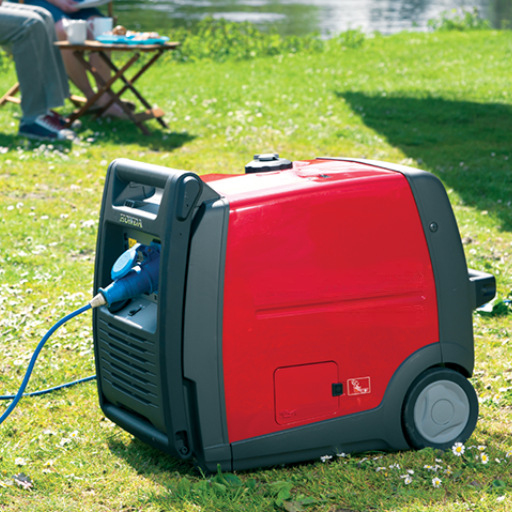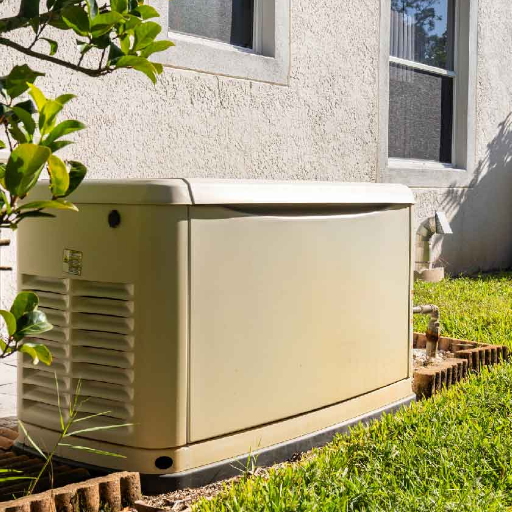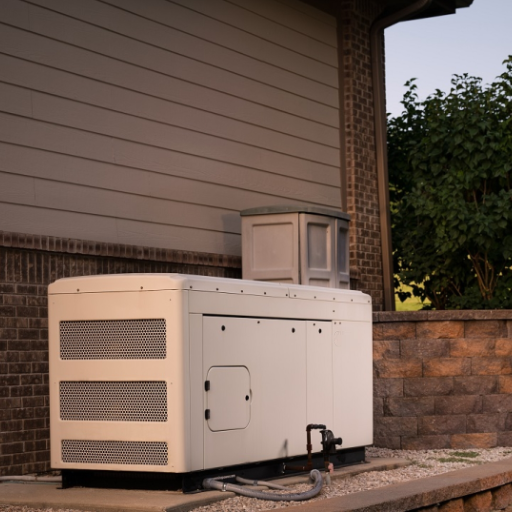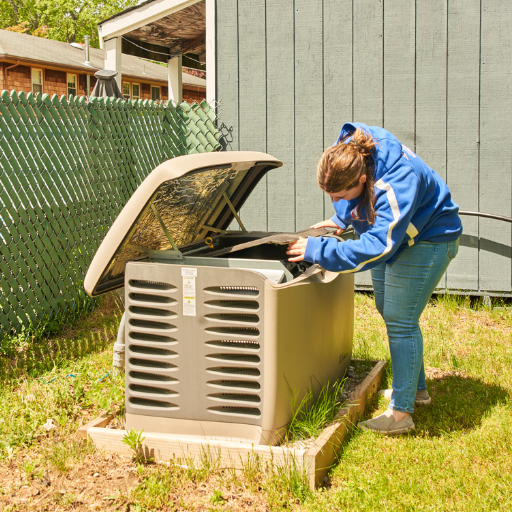Choosing a generator can be overwhelming, given the numerous options and features to consider. Dual-fuel generators are versatile and embody power, efficiency, and flexibility all in one. If you want to prepare for unexpected power outages, enjoy some off-grid time with loved ones, or power tools on a job site, dual-fuel generators offer the convenience of operating on both gasoline and propane. So, which generator fits your exact needs? This comprehensive guide explores all the essential features and benefits, as well as the factors to weigh when making a decision. By the end of the article, you will enjoy enough confidence and knowledge to select any dual-generator that suits a particular situation.
Dual-Fuel Generator Definition and Overview
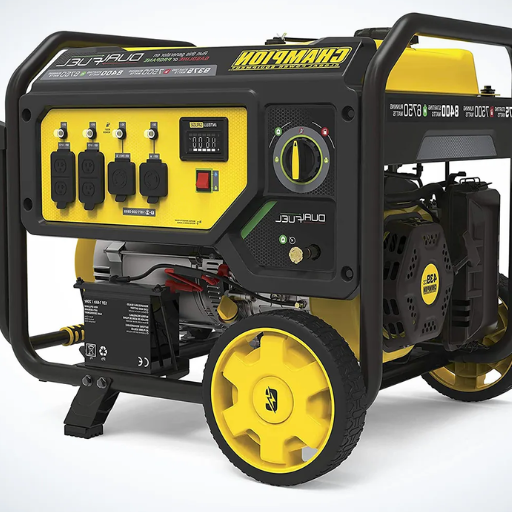
Dual-fuel generators emerged as multipurpose power solutions that operate on two fuels, typically gasoline and propane. The motive is the added convenience; yet, in particular settings, such as emergencies or remote job sites, the other side of it provides flexibility in use. Gasoline is readily available with strong performance; propane, on the other hand, is more environmentally friendly and has a longer shelf life. With these characteristics, dual-fuel generators provide an efficient and reliable solution for homes and offices.
What is a Dual-Fuel Generator?
A dual-fuel generator is a versatile power generation unit designed to utilize two types of fuel, with gasoline being one and propane being the other, allowing users to switch between fuels depending on availability, pricing, or ecological considerations.
How Dual-Fuel Generators Work
Designed for flexibility and reliability, dual-fuel generators accept two fuel inputs, typically gasoline and propane. This generator is equipped with a dual-fuel system, consisting of a carburetor, a fuel selector switch, and specialized intake ports, which accommodate both fuel types. While the generator is in operation, a user can switch between fuels, mostly without shutting off the generator, which is convenient in cases of extended use or emergencies.
Gasoline is typically the predominant fuel for dual-fuel generators because it is readily available and provides a higher energy output. Propane, on the other hand, presents several advantages: it burns cleaner, has lower emissions, and can be stored for a longer period. According to estimated statistics from the U.S. Department of Energy, propane emits approximately 12 percent less carbon dioxide than gasoline, making it a more environmentally favorable option.
While running on any fuel, the engine converts the chemical energy in the fuel into mechanical energy, which is then converted by the alternator into electrical energy. Efficiency varies from one dual-fuel generator to another. Still, many models feature Auto-Choke Systems to conserve fuel and ensure the generator starts reliably, even in cold ambient air temperatures.
According to recent industry statistics, dual-fuel generators can provide between 8 and 14 hours of runtime on a single tank of gasoline, depending on the load, whereas a 20-pound propane tank fuels the generator for approximately 6-8 hours at 50% load. This offers the flexibility for people to favor longer runtime or fuel availability based on the situation at hand.
Dual-fuel generators are handy in cases of power failures or when setting up off-grid applications. They enable users to work efficiently and adapt to fuel shortages and changing environmental conditions. These systems are designed not only for their convenience but also to reduce carbon emissions and fuel costs, which elevates their value.
Common Fuel Types Used
- Gasoline
Gasoline has been predominantly used as a fuel for small- to medium-power generators, due mainly to its widespread availability from almost any petrol pump, coupled with a high energy output. However, things quickly change between the shelf life and emissions profile; the fuel exhibits a relatively shorter shelf life and higher carbon emissions compared to the rest.
- Diesel
Diesel is considered to be more efficient and durable. Diesel-generators, for that matter, usually live longer and consume less fuel than their gasoline counterparts. Additionally, due to diesel’s low flammability, it is safer to store. However, diesel generators produce considerable noise and require frequent maintenance.
- Propane (LPG)
Propane is a clean-burning fuel that virtually never expires. Due to this, it is a suitable option for residential use, as the emissions are lower and it operates quietly. The downside, on the other hand, is that it requires special tanks and may not necessarily be on the higher side of energy outputs when compared to a gasoline or diesel benchmark.
- Natural Gas
Particularly for urban generators where utility hookups are of consequence, natural gas is generally a good fit for stationary generators. It is also the cleanest burning one and the cheapest. However, it requires a permanent connection to a pipeline, making it a less portable option.
- Solar Power (with battery storage)
Being a renewable source and a green option, solar power is the fastest growing alternative source of energy. Solar panel systems are installed, and batteries are set up to store energy. Being renewable leads to zero emissions, but on the downside, solar-powered generators are less reliable in instances where there are extended periods of low sunlight or when power demand is very high.
These fuels vary in their availability, performance, and environmental impact; thus, users can select the most suitable one for their occasion. Each has its advantages and disadvantages, and these in turn will serve different uses and preferences.
Benefits of Using Dual-Fuel Generators

|
Key Point |
Description |
|---|---|
|
Fuel Flexibility |
Operates on gasoline and propane for versatility. |
|
Extended Runtime |
Switch between fuels for longer operation. |
|
Eco-Friendly Option |
Propane reduces emissions compared to gasoline. |
|
Fuel Availability |
Use alternative fuel during shortages. |
|
Cost Efficiency |
Choose the most economical fuel available. |
|
Storage Benefits |
Propane stores longer and safer than gasoline. |
|
Reliability |
Dual fuel ensures power during emergencies. |
|
Adaptability |
Suitable for various climates and conditions. |
|
Ease of Use |
Simple fuel switching mechanisms. |
|
Backup Power |
Ideal for extended blackouts or off-grid use. |
Fuel Flexibility and Options
If one looks at a dual-fuel generator, one will notice that it has the main traits: using the two kinds of fuel, gasoline and propane, thereby increasing the convenience for the user as well as the flexibility to use whichever option is more readily available or efficient in a given situation. Below are the alternatives with their respective descriptions:
- Gasoline
- Availability: Widely used, it is nearly always present at gas stations.
- Performance: Generate this much power and in an efficient manner, which is best suited for applications demanding large amounts.
- Limitations: Due to its relatively short shelf life and extreme flammability, it must be stored with utmost care.
- Propane
- Availability: It is supplied through tanks to the residential, commercial, and industrial sectors.
- Performance: It burns cleaner than gasoline, thus generating fewer emissions.
- Limitations: It had slightly less power output than gasoline and required special-purpose tanks.
- Natural Gas
- Availability: Through an underground network of pipes, natural gas is supplied, ensuring a continuous fuel supply wherever infrastructure exists.
- Performance: Performs economically and is best for the environment, with the lowest operating cost.
- Limitations: Location restricted, depending on the availability of the pipeline, may pose a constraint to portability.
- Diesel
- Availability: Easily procured and preferably used in industrial and commercial generators.
- Performance: Highly fuel-efficient and best for long-term running applications.
- Limitations: Highly polluting and could require extra maintenance.
- Ethanol-Blended Fuels
- Availability: Freely accessible as an alternate renewable source of energy.
- Performance: Complement the environment by cutting down greenhouse gas emissions.
- Limitations: This may not be suitable for specific generator types; moreover, it has lower energy efficiency compared to gasoline.
Considering such a large choice means being looked down on only for better efficiency, cost savings, and adaptability, thus making a dual-fuel generator highly dependable in any given situation.
Cost Efficiency
The dual-fuel engines have a somewhat notorious reputation for being cost-efficient, allowing the end-user to save on expenses without compromising power. The user cuts fuel costs during operation by choosing to run on propane, which is cheaper and more commonly available than gasoline. Propane prices are being recorded as low as $2.68 per gallon (in September 2023), as compared to an average of $3.96 per gallon for gasoline in the same period. The difference in fuel pricing becomes an opportunity for enduring savings, especially for those who run their generators frequently or for extended hours. Switching is also possible with dual-fuel generators, taking into account fluctuations in fuel availability and prices, thereby ensuring maximum economic returns for the user. It is also more economically efficient for long-term fuel storage, as propane does not degrade quickly compared to gasoline, thereby saving on frequent fuel replacements. For residential or commercial use, this flexibility results in reduced operational costs, making dual-fuel generators a more economically viable choice in the long run.
Environmental Impact
From the perspective of environmental impact, dual-fuel generators have several advantages:
- Lower Greenhouse Gas Emissions
Propane, one of the fuel options for dual-fuel generators, is cleaner-burning than gasoline. According to the U.S. Department of Energy, the combustion of propane generates about 12% less carbon dioxide (CO2) on an energy basis than gasoline, thereby reducing the contribution to greenhouse gas emissions.
- Fewer Harmful Pollutants
Propane emits fewer pollutants, such as carbon monoxide (CO) and particulate matter, into the atmosphere than gasoline and diesel, resulting in improved air quality and a reduced impact on the respiratory health of communities in the vicinity.
- Lower Risk of Fuel Spills
Propane is stored in pressurized, sealed containers, rather than in a liquid state, which significantly reduces environmental contamination due to spillage. From this viewpoint, it lessens the risk to soil and aqueous ecosystems.
- Extended Life and Efficiency of the Engine
Using cleaner-burning propane means that fewer deposits will build up in the engine of a dual-fuel generator. Hence, the life of the generator is extended, and it operates more efficiently, resulting in reduced fuel consumption and lower emissions.
- Renewable Energy Integration Support
Dual-fuel generators complement renewable energy systems by ensuring reliable backup power, allowing households and businesses to rely more on renewable energy and less on fossil fuels, and promoting green energy solutions.
Key Features to Look for in a Dual-Fuel Generator
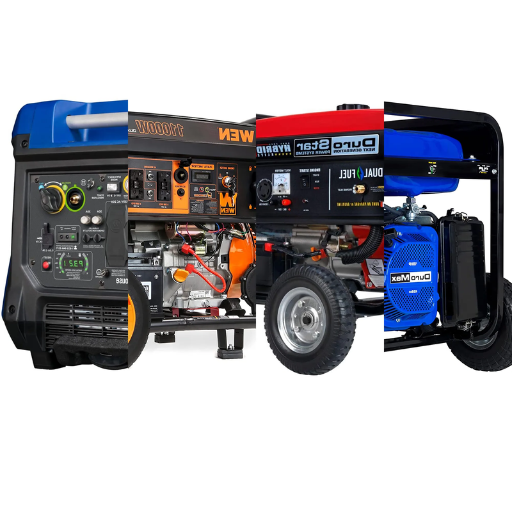
|
Key Feature |
Description |
|---|---|
|
Fuel Compatibility |
Supports gasoline and propane for flexibility. |
|
Wattage Output |
Check power ratings for both fuel types. |
|
Runtime Duration |
Longer runtime with dual fuel options. |
|
Fuel Switching Mechanism |
Easy manual or automatic fuel switching. |
|
Portability |
Compact design with wheels for mobility. |
|
Noise Level |
Low noise operation for residential use. |
|
Safety Features |
Includes low-oil shutoff and overload protection. |
|
Durability |
Sturdy build for long-term use. |
|
Eco-Friendliness |
Propane reduces emissions and carbon footprint. |
|
Ease of Maintenance |
Accessible parts for cleaning and servicing. |
Power Output and Capacity
To select a suitable dual-fuel generator, one must evaluate the power output and capacity to determine if the unit aligns with their specific energy requirements. Power output is typically measured in watts and simply refers to the maximum load that a device can support at a given time. Most dual-fuel generators come with varying output capabilities, ranging from 3,500 watts for small units designed for basic household tasks to over 10,000 watts for larger models intended for industrial use.
The capacity can vary significantly for different types of fuel. An example is a dual-fuel generator running on propane, which generally produces somewhat less wattage output compared to gasoline due to differences in energy density. For example, a 10,000-watt peak generator running on gasoline might supply about 9,000 watts on propane. Major brands worth considering include the Westinghouse WGen9500DF, which can generate an output of 12,500 peak watts on gasoline and 11,200 watts on propane. In the same vein, it appears to be an excellent choice for either home or worksite applications, as the Champion 7500-Watt Dual-Fuel Generator delivers 9,375 starting watts on gasoline and 8,400 watts on propane.
Understanding peak and continuous power requirements is essential. Appliances like refrigerators, air conditioners, or pumps typically require more starting watts, so it’s necessary to select a generator with surge capacity to ensure uninterrupted operation. Contemporary dual-fuel generators also feature inverter technology, which produces a stable power output suitable for sensitive electronics such as laptops or smartphones. Evaluate your energy needs and select a model that offers you a balance between power and fuel efficiency.
Fuel Efficiency
Prevailing dual-fuel generators can also be fuel-saving by choosing, depending on which is cheaper to run or has a longer running time, to operate on either gas or propane, according to availability.
Portability and Design
Modern dual-fuel generators are typically mobile and user-friendly. The following are five key elements enhancing portability and aesthetic features:
- Size: Compact – Most models feature a streamlined design for convenient transport and storage, without occupying too much space.
- Wheels and Handles – Heavy-duty wheels are available for installation, accompanied by foldable handles on top of the generator, which enable users to move the generator across various terrains easily.
- Lightest-Weight Construction – Generators are constructed of strong yet lightweight materials such as aluminum or composite plastics so that the generator remains solid without being a heavy burden.
- Noise-Reduction Enclosure – Modern design comprises sound-dampening technology to reduce noise levels, ensuring a quieter operation.
- Ergonomic Layout – Controls have been thoughtfully placed on the panel for easy reach, allowing intuitive use for even a first-time operator.
Top Brands and Models of Dual-Fuel Generators

|
Brand |
Model |
Key Features |
|---|---|---|
|
Westinghouse |
WGen9500DF |
12,500 peak watts, remote start, versatile outlets. |
|
Champion |
7500-Watt Dual-Fuel |
7,500 running watts, electric start, durable build. |
|
DuroMax |
XP12000EH |
12,000 peak watts, CO sensor, heavy-duty use. |
|
Pulsar |
7,250-Watt Dual-Fuel Inverter |
Compact, clean power, propane and gas compatible. |
|
WEN |
DF11000T |
11,000 peak watts, electric start, multiple outlets. |
Best Dual-Fuel Generators on the Market
- Champion Power Equipment 76533
- Fuel Type: Gas and Propane
- Power Output: 3800 watts (start), 4750 watts (running on gas), 3420 watts (start), 4275 watts (running on propane)
- Run Time: Up to 9 hours on gas, 10.5 hours on propane at 50% load
- Noise Level: 68 dBA
- Features:
- Electric start with a reliable toggle switch
- Built-in Volt Guard to prevent overloads
- 3-year warranty
- Best For: Home backup and RVs
- Westinghouse WGen7500DF
- Fuel Type: Gasoline and Propane
- Power Output: 7500 watts (running), 9500 watts (peak)
- Run Time: Up to 11 hours on 6.6-gallon gas tank
- Noise Level: Somewhere around 72 dBA
- Features:
- Remote start via key fob
- Transfer switch compatible for easy home backup power
- GFCI outlets for added safety
- 3-Year limited service warranty
- Best For: Heavy-duty usage and extended power requirements
- Duromax XP12000EH “The Beast”
- Fuel Type: Gas and Propane
- Power Output: 9500 watts (running), 12000 watts (peak)
- Run Time: 9 hours max on gasoline (8.3-gallon fuel tank), depending on load
- Noise Level: 72 dBA
- Features:
- The Beast is prepared for heavy use as a whole-home or job-site backup generator
- All metal construction for durability
- Dual fuel switch allows for easy and quick change from propane to gasoline
- Best For: Emergency home power and construction sites
- Pulsar G12KBN
- Fuel Type: Gasoline and Propane
- Power Output: 9500 watts (rated), 12000 watts (peak)
- Run Time: Up to 12 hours on a full 8-gallon gas tank
- Noise Level: About 74 dBA
- Features:
- Heavy-duty frame with no-flat 10-inch wheels for easy portability
- All-encompassing power panel with a dozen outlets for versatility
- CARB compliant for green living
- Best For: Job sites, outdoor events, and emergency backup
- Firman H08051
- Fuel Type: Gasoline and Propane
- Power Output: 8000 watts (running), 10000 watts (starting on gas); 9050 watts (starting on propane)
- Run Time: Up to 12 hours on a 6.6-gallon gas tank
- Noise Level: 74 dBA
- Features:
- Multi-function control panel for ease of use
- Built-in 10-inch wheels for portability
- 3-Year warranty support
- Best For: Large households and for extensive usage needs
The above models represent some of the best-performing, reliable, and user-friendly features that make up the dual-fuel generator market. They fit ideally into several scenarios, spanning from emergency home use to professional job site power solutions. When choosing a generator, it is essential to analyze those that will meet your particular power needs, fuel accessibility, and runtime preferences.
Comparative Analysis of Leading Brands
| Brand | Key Model | Peak Watts | Fuel Options | Runtime (Gas/Propane) | Noise Level | Special Features |
|---|---|---|---|---|---|---|
|
Westinghouse |
WGen9500DF |
12,500 |
Gasoline, Propane |
12 hrs / 7 hrs |
89 dB |
Remote start, versatile outlets |
|
Champion |
7500-Watt Dual-Fuel |
9,375 |
Gasoline, Propane |
10 hrs / 5.5 hrs |
74 dB |
Electric start, Intelligauge display |
|
DuroMax |
XP12000EH |
12,000 |
Gasoline, Propane |
8 hrs / 7 hrs |
74 dB |
CO sensor, heavy-duty build |
|
Pulsar |
7,250-Watt Inverter |
7,250 |
Gasoline, Propane |
14 hrs / 21 hrs |
Moderate |
Compact, clean power, inverter tech |
|
WEN |
DF11000T |
11,000 |
Gasoline, Propane |
8.5 hrs / 7 hrs |
74 dB |
Electric start, multiple outlets |
User Reviews and Recommendations
In an attempt to settle on the best dual-fuel generator, I gave significant consideration to user reviews to avoid being misled in my choice. The highlighted basic criteria were reliability and ease of use, and brands such as Champion and Westinghouse were almost always worthy of mention. They also recommend that the wattage capacity and runtime should be sufficient to address your requirements. I chose to use fuel availability and portability of the generator as my criteria for further screening.
Comparing Dual-Fuel Generators with Other Types
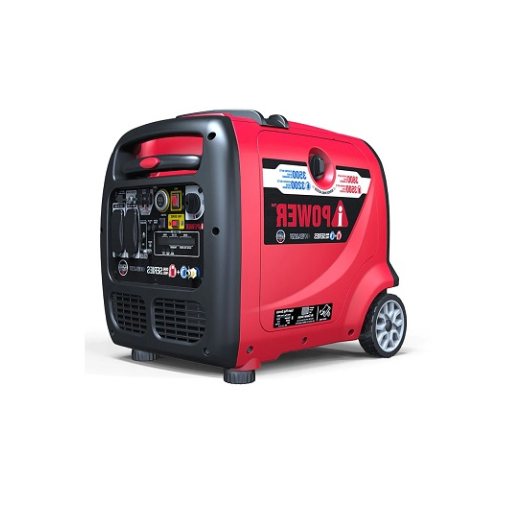
| Parameter | Dual-Fuel Generators | Gasoline Generators | Diesel Generators | Solar Generators |
|---|---|---|---|---|
|
Fuel Options |
Gasoline and propane |
Gasoline only |
Diesel only |
Solar energy |
|
Fuel Availability |
Flexible during shortages |
Limited to gasoline supply |
Widely available |
Dependent on sunlight |
|
Eco-Friendliness |
Propane reduces emissions |
Higher emissions |
Higher emissions |
Zero emissions |
|
Startup in Cold |
Gasoline performs better in cold |
Reliable in cold weather |
Difficult to start in cold |
No impact from temperature |
|
Storage |
Propane stores longer than gasoline |
Gasoline degrades over time |
Diesel degrades over time |
No fuel storage required |
|
Runtime |
Longer with dual fuel options |
Shorter, depends on gasoline |
Long runtime with large tanks |
Limited by battery capacity |
|
Power Output |
Moderate to high, depending on model |
Moderate to high |
High power output for heavy loads |
Low to moderate |
|
Maintenance |
Cleaner with propane, less carbon buildup |
Frequent maintenance |
Requires regular filter changes |
Minimal maintenance |
|
Initial Cost |
Higher due to dual fuel capability |
Lower initial cost |
Moderate cost |
High initial cost |
|
Portability |
Portable with wheels |
Highly portable |
Less portable due to weight |
Lightweight and portable |
Dual Fuel vs. Gasoline Generators
| Parameter | Dual Fuel Generators | Gasoline Generators |
|---|---|---|
|
Fuel Options |
Gasoline and propane |
Gasoline only |
|
Fuel Availability |
Flexible during shortages |
Limited to gasoline supply |
|
Runtime |
Longer with dual fuel options |
Shorter, depends on gasoline |
|
Eco-Friendliness |
Propane reduces emissions |
Higher emissions |
|
Startup in Cold |
Gasoline performs better in cold |
Reliable in cold weather |
|
Storage |
Propane stores longer than gasoline |
Gasoline degrades over time |
|
Cost Efficiency |
Choose cheaper fuel option |
Dependent on gasoline prices |
|
Maintenance |
Cleaner with propane, less carbon buildup |
More frequent maintenance |
|
Versatility |
Suitable for various climates |
Limited to gasoline performance |
|
Initial Cost |
Higher due to dual fuel capability |
Lower initial cost |
Dual Fuel vs. Diesel Generators
| Parameter | Dual Fuel Generators | Diesel Generators |
|---|---|---|
|
Fuel Options |
Gasoline and propane |
Diesel only |
|
Fuel Availability |
Flexible during shortages |
Widely available |
|
Runtime |
Longer with dual fuel options |
Long runtime with large tanks |
|
Eco-Friendliness |
Propane reduces emissions |
Higher emissions |
|
Startup in Cold |
Gasoline performs better in cold |
Difficult to start in cold |
|
Storage |
Propane stores longer than diesel |
Diesel degrades over time |
|
Cost Efficiency |
Choose cheaper fuel option |
Diesel is cost-effective for heavy use |
|
Maintenance |
Cleaner with propane, less carbon buildup |
Requires regular filter changes |
|
Power Output |
Moderate to high, depending on model |
High power output for heavy loads |
|
Initial Cost |
Higher due to dual fuel capability |
Lower initial cost |
Advantages of Dual Fuel over Solar and Inverter Generators
| Parameter | Dual Fuel Generators | Solar Generators | Inverter Generators |
|---|---|---|---|
|
Fuel Flexibility |
Uses gasoline and propane |
Limited to solar energy |
Gasoline only |
|
Power Availability |
Works anytime, no sunlight needed |
Dependent on sunlight |
Works anytime |
|
Runtime |
Longer with dual fuel options |
Limited by battery capacity |
Limited by fuel tank size |
|
Power Output |
High output for heavy loads |
Low to moderate output |
Moderate output |
|
Startup in Cold |
Reliable in cold weather |
Affected by battery performance |
Reliable in cold weather |
|
Initial Cost |
Moderate to high |
High initial cost |
Moderate cost |
|
Fuel Storage |
Propane stores longer than gasoline |
No fuel storage required |
Gasoline degrades over time |
|
Eco-Friendliness |
Propane reduces emissions |
Zero emissions |
Higher emissions |
|
Versatility |
Suitable for various climates |
Limited to sunny conditions |
Suitable for various climates |
|
Maintenance |
Cleaner with propane, less carbon buildup |
Minimal maintenance |
Requires regular maintenance |
References
-
Dual-fuel diesel engines
This book offers an in-depth examination of dual-fuel engines, encompassing their advantages, challenges, and applications. It is a valuable resource for understanding the technical aspects of dual-fuel systems.
Read more here -
Electric Generators Handbook – Two Volume Set
This comprehensive handbook covers various types of generators, including dual-fuel systems, and provides detailed insights into their design and operation.
Read more here -
Distributed Generation: Induction and Permanent Magnet Generators
This publication offers authoritative information on generators, including their integration into distributed energy systems, which is relevant for dual-fuel generator applications.
Read more here
Frequently Asked Questions (FAQ)
What is a dual-fuel generator?
A dual-fuel generator is a versatile power solution that can operate using two types of fuel, typically gasoline and natural gas. This flexibility allows users to choose the most readily available fuel source, making it ideal for both home backup power and outdoor activities. By switching between fuels, users can optimize fuel efficiency and reduce operational costs.
How do I choose the right dual-fuel generator for my needs?
When selecting the ideal dual-fuel generator, consider key factors such as power output, fuel type compatibility, portability, and features like electric start. Assess your power needs during a power outage and ensure the generator can provide reliable power for the essential appliances in your home. Also, review the fuel consumption rates and the availability of fuel sources in your area to make an informed decision.
What are the benefits of using a dual-fuel generator?
Dual-fuel generators offer significant benefits, including flexibility in fuel options, potentially lower fuel costs, and the ability to run on cleaner-burning fuels. They are particularly beneficial during emergencies, such as power outages, as they can adapt to the available fuel supply. Additionally, their multi-fuel capability enables users to switch fuels based on efficiency and cost, resulting in improved fuel management.
How does a dual-fuel generator compare to a single-fuel generator?
A dual-fuel generator can run on two different fuel types, providing more versatility compared to a single-fuel generator, which operates on only one fuel source. This flexibility enables users to select between gasoline and natural gas, depending on availability and fuel prices. Single-fuel generators may be simpler and often have fewer components, but they lack the adaptability that dual-fuel generators provide.
Can a dual-fuel portable generator be used for solar power solutions?
While dual-fuel portable generators are not solar generators themselves, they can complement solar power solutions by providing backup power when sunlight is insufficient. If you’re using a solar generator, the dual-fuel generator can serve as a reliable power source during extended periods of cloudiness or power outages, ensuring a continuous power supply.
What is the fuel efficiency of dual-fuel generators?
Fuel efficiency in dual-fuel generators can vary depending on the type of fuel used, the generator’s design, and the load it is carrying. Generally, natural gas is often more fuel-efficient than gasoline, but this can depend on the specific model and conditions. Users should consult the manufacturer’s specifications for the best dual-fuel generators to understand their fuel consumption rates and make decisions based on operational costs.
What should I consider when selecting the fuel type for my dual-fuel generator?
When selecting the fuel type for your dual-fuel generator, consider factors such as availability, cost, and the environmental impact of each fuel option. Natural gas is often cleaner and more economical, while gasoline provides more portability and ease of access. Evaluate your fuel preferences based on your power needs and storage capabilities to ensure you choose the most efficient fuel source for your generator.
Are there any maintenance tips for dual-fuel generators?
Regular maintenance is essential for dual-fuel generators to ensure optimal performance. Keep the generator clean, check and change the oil as recommended, and inspect the fuel lines for leaks. It’s also essential to run the generator periodically to keep it in good working condition, regardless of which fuel type you’re using. Following the manufacturer’s guidelines can help extend the life of your generator.



